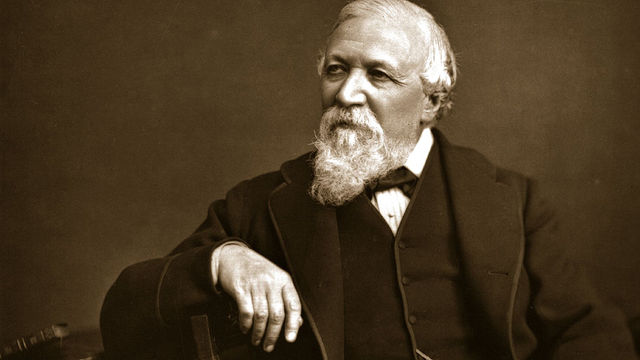Chesterton calls Browning “the greatest of love-poets” and his poetry the “finest and truest love – poetry in the world”. Though this may sound a hyperbole, yet there is hardly any denying that Robert Browning as a love poet describes the passion of love with utmost sincerity and energy. His great poems are, in some sense or other, intellectual study of love, rhymed passionately. “The Last Ride Together“, “Porphyria’s Lover” and “Fra Lippo Lippi” are three of his celebrated love poem.
“The Last Ride Together“, which W. H. Philip calls one of the greatest love poems in all literature, is a dramatic monologue of a rejected lover. The failure in love gives the speaker an occasion to philosophise on the general fate of mankind. When rejected by his lady, he makes an appeal for “one memory of the same”, a last ride together. When his prayer if granted, the elated lover lays bare his mind.
The real interest of “The Last Ride Together” lies in the calm resignation with which the rejected lover accepts his fate. The opportunity to ride together with the aspired lady is a great achievement to the lover and tie consoles himself by saying “Fail I alone in Words and deeds ? ” The physical proximity rouses his passions once more and the moment turns into eternity.Leaving behind past hopes, he looks at the future life where, he believes, his aspiration will be fulfilled- “now Heaven and she are beyond this ride”.
Here love is just a symbol of man’s striving on this earth to attain perfection. The failure of the lover in gaining his beloved is seen as a symbol of man’s greater failures in life. The poem ends with the lover indulging in the fond fancy that this moment is turned into eternity and this ride never ends-
And Heaven just prove that I and she
Ride, ride together, for ever ride?
Love, therefore, is seen here “as an inspiration which was not to be realized here at all, but must have its completion in the other life”, says J. T. Nettleship.
In “Porphyria‘s Lover” Robert Browning as a love poet presents an altogether different philosophy of the lover. This dramatic monologue is a calm and callous narrative of a murder of a lady by her lover. The dismal opening lands one into a cottage in a dark and stormy night where the beloved lady Porphyria appears out of the storm to meet the apparently depressed narrator. Her appearance, however, gives him little joy although she makes a passionate declaration of her love for him and attempts at Physical intimacy.
Though enjoying the physical proximity with Porphyria, her lover starts finding faults with her. She appears
Too weak, for all her heart’s endeavour,
To set its struggling passion free.
Though proud at being ‘worshipp’d’ by Porphyria, the lover strangles her with her yellow tresses. To him, it is an act not of hate, anger or revenge, but of love. Her ” laughing eyes” even at death indicate her pleasure at being so close to her lover and her effort to remain smiling even at her death. With her head on his shoulder there they sit for the whole night. Thus the lover seems to turn the instant into eternity like his counterpart in “The Last Ride Together” by holding her in a perfectly happy moment, when she is his alone.
In “Fra Lippo Lippi” Browning shows the attraction of physical love. Though a monk, Lippo is instinctively attracted towards girls as he has been forced to live a life of strict asceticism ever since he was a boy of eight. Therefore, when caught by the guards after visiting brothel, he feels no sting of conscience as he considers it no crime to mix with girls. Browning here seems to advocate that man can attain fulfillment by accepting the pleasures and pains of this world.
Love, therefore, appears in all its guises in Browning’s poetry. The variety found in his treatment of love is simply amazing.

